
Vere Gordon Childe was an Australian archaeologist who specialised in the study of European prehistory. He spent most of his life in the United Kingdom, working as an academic for the University of Edinburgh and then the Institute of Archaeology, London. He wrote twenty-six books during his career. Initially an early proponent of culture-historical archaeology, he later became the first exponent of Marxist archaeology in the Western world.
In political science, a culture war is a type of cultural conflict between different social groups who struggle to politically impose their own ideology upon their society. In political usage, the term culture war is a metaphor for "hot-button" politics about values and ideologies, realized with intentionally adversarial social narratives meant to provoke political polarization among the mainstream of society over economic matters of public policy and of consumption. As practical politics, a culture war is about social policy wedge issues that are based on abstract arguments about values, morality, and lifestyle meant to provoke political cleavage in a multicultural society.
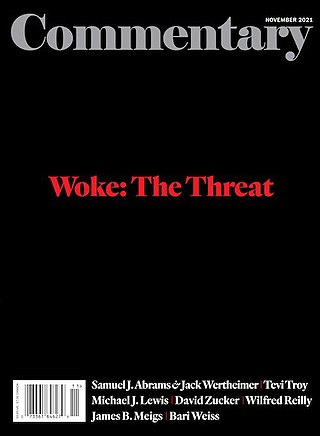
Commentary is a monthly American magazine on religion, Judaism, and politics, as well as social and cultural issues. Founded by the American Jewish Committee in 1945 under Elliot E. Cohen, editor from 1945 to 1959, Commentary magazine developed into the leading post-World War II journal of Jewish affairs. The periodical strove to construct a new American Jewish identity while processing the events of the Holocaust, the formation of the State of Israel, and the Cold War. Norman Podhoretz edited the magazine from 1960 to 1995.
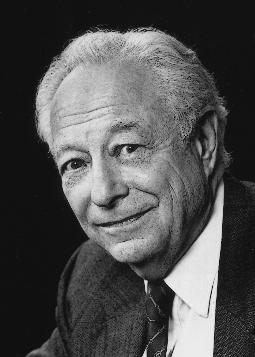
Irving William Kristol was an American journalist who was dubbed the "godfather of neoconservatism". As a founder, editor, and contributor to various magazines, he played an influential role in the intellectual and political culture of the latter half of the twentieth century. After his death, he was described by The Daily Telegraph as being "perhaps the most consequential public intellectual of the latter half of the century".
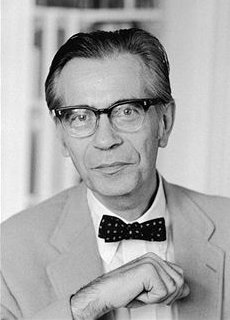
Richard Hofstadter was an American historian and public intellectual of the mid-20th century. Hofstadter was the DeWitt Clinton Professor of American History at Columbia University. Rejecting his earlier historical materialist approach to history, in the 1950s he came closer to the concept of "consensus history", and was epitomized by some of his admirers as the "iconic historian of postwar liberal consensus." Others see in his work an early critique of the one-dimensional society, as Hofstadter was equally critical of socialist and capitalist models of society, and bemoaned the "consensus" within the society as "bounded by the horizons of property and entrepreneurship", criticizing the "hegemonic liberal capitalist culture running throughout the course of American history".
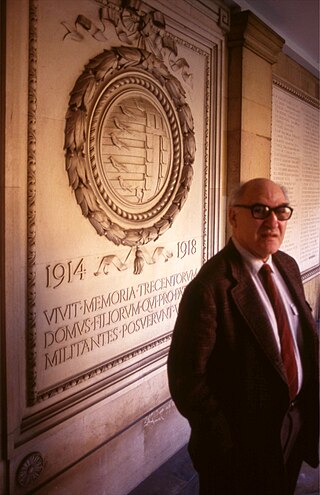
Gerhard "George" Lachmann Mosse was a German-American social and cultural historian, who emigrated from Nazi Germany to Great Britain and then to the United States. He was professor of history at the University of Iowa, the University of Wisconsin–Madison, and also in Israel, at the Hebrew University of Jerusalem. Best known for his studies of Nazism, he authored more than 25 books on topics as diverse as constitutional history, Protestant theology, and the history of masculinity. In 1966, he and Walter Laqueur founded The Journal of Contemporary History, which they co-edited.

Charles Manning Hope Clark, was an Australian historian and the author of the best-known general history of Australia, his six-volume A History of Australia, published between 1962 and 1987. He has been described as "Australia's most famous historian", but his work has been the target of much criticism, particularly from conservative and classical liberal academics and philosophers.
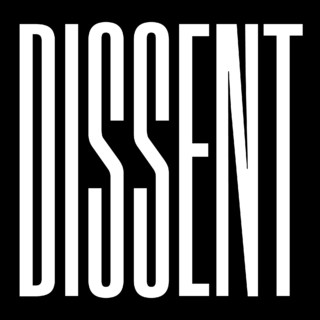
Dissent is an American Left intellectual magazine edited by Natasha Lewis and Timothy Shenk and founded in 1954. The magazine is published by the University of Pennsylvania Press on behalf of the Foundation for the Study of Independent Social Ideas. Former co-editors include Irving Howe, Mitchell Cohen, Michael Walzer, and David Marcus.

Robert Michael Manne is an Emeritus Professor of politics and Vice-Chancellor's Fellow at La Trobe University, Melbourne, Australia. He is a leading Australian public intellectual.
Rowan Cahill is an Australian historian and journalist, with a background as a teacher and farmhand, who variously worked for the trade union movement as a rank and file activist, delegate and publicist.

Piero Gobetti was an Italian journalist, radical liberal intellectual and anti-fascist. He was an exceptionally active campaigner and critic in the crisis years in Italy after the First World War and into the early years of Fascist rule.
In the United States, conservatism is based on a belief in limited government, individualism, traditionalism, republicanism, and limited federal governmental power in relation to U.S. states. Conservative and Christian media organizations, along with American conservative figures, are influential, and American conservatism is one of the majority political ideologies within the Republican Party.
Liberalism is a political and moral philosophy based on the rights of the individual, liberty, consent of the governed, political equality, right to private property and equality before the law. Liberals espouse various and often mutually warring views depending on their understanding of these principles but generally support private property, market economies, individual rights, liberal democracy, secularism, rule of law, economic and political freedom, freedom of speech, freedom of the press, freedom of assembly, and freedom of religion, constitutional government and privacy rights. Liberalism is frequently cited as the dominant ideology of modern history.
This is a selective bibliography of conservatism in the United States covering the key political, intellectual and organizational themes that are dealt with in Conservatism in the United States. Google Scholar produces a listing of 93,000 scholarly books and articles on "American Conservatism" published since 2000. The titles below are found in the recommended further reading sections of the books and articles cited under "Surveys" and "Historiography." The "Historiography" and "Critical views" section mostly comprise items critical or hostile of American conservatism.
Colonial liberalism was the political movement that was active in the Australian colonies between the 1850s and the 1890s that combined liberalism with the demands of the Chartists. Colonial liberalism was a unique movement that was unlike anything in any other country. This movement led to particular approaches to education, trade, industrial relations and economic management being developed which were used by the Australian colonies and later the federated Commonwealth of Australia. This radical movement helped give birth to the foundations of the Australian ideals of democracy, egalitarianism and the 'Fair Go' in life. Colonial liberalism had a major impact in the Australian colonies until the labour strikes of the 1890s led to the formation of the Australian Labor Party and the Australian labour movement.
Carl Bridge is an Australian historian, academic, and professor emeritus of Australian History at King's College London.
The term "Cultural Marxism" refers to a far-right antisemitic conspiracy theory that misrepresents the Frankfurt School as being responsible for modern progressive movements, identity politics, and political correctness. The conspiracy theory posits that there is an ongoing and intentional academic and intellectual effort to subvert Western society via a planned culture war that undermines the Christian values of traditionalist conservatism and seeks to replace them with culturally liberal values.
Edmund Fawcett is a British political journalist and author.
In July 2005, Indonesian Ulema Council (MUI), a semi-official Islamic clerical body of Indonesia, issued a fatwa, or an Islamic legal opinion, against religious pluralism, liberalism, and secularism. The issuance of fatwa garnered substantial controversy and scholarly attention. The fatwa addressed the reformist trend of Islam which had been popular among the broad Indonesian society over the past 25 years. Such trends advocated for a more substantive reading of the Quran and Hadith, instead of literalist approaches taken by the majority of ulamas. MUI considered such ideas as incompatible with Islamic teaching, releasing the fatwa to promote a more literal reading of the Islamic scriptures. The fatwa was heavily criticized by progressive Muslim intellectuals.
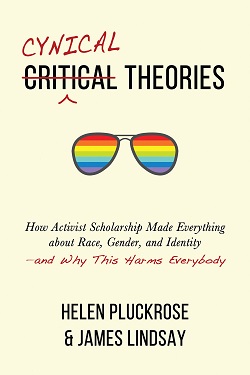
Cynical Theories: How Activist Scholarship Made Everything About Race, Gender, and Identity—and Why This Harms Everybody is a nonfiction book by Helen Pluckrose and James Lindsay, published in August 2020. The book was listed on the bestsellers lists of Publishers Weekly, USA Today, and the Calgary Herald.









